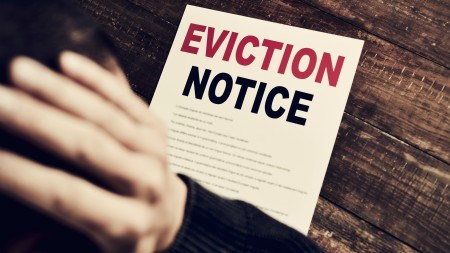How to deal with problems that may arise between landlords and tenants, and who is responsible for what.
WHEN PROBLEMS ARISE...
The Rental Housing Tribunal was established to resolve disputes between landlords and tenants, should they not be able to solve the issue themselves.
Any landlord or tenant may lodge a complaint with the Tribunal, against the unfair practice.
The aim of the Tribunal is to:
- Inform landlords and tenants about their rights and obligations in terms of the Rental Housing Act
- Promote harmony and stability in the rental housing sector, between landlords and tenants
- Create mechanisms to resolve disputes in the rental housing sector that arise due to unfair practices
- Facilitate, investigate, mediate and conduct hearings to resolve disputes
- Make recommendations to relevant stakeholders
- Lay down general principles governing conflict resolution in the Rental Housing Sector
What issues are dealt with by the Tribunal?
- Deposits
- Non-payment of rental
- Exploitative rentals
- Condition, use and maintenance
- Utility services
- Lease agreement disputes (verbal and written)
- The rights and duties of landlords and tenants
- Damage to property
- Eviction
- House rules
- Intimidation
- Issuing of receipts maintenance
TENANT AND LANDLORD RIGHTS
Landlord:
- Deliver the property to the tenant in a condition fit to live in.
- Give the tenant undisturbed use of the property, inspect the property - as long as the tenant knows in advance.
- A restriction on the number of residents on the property is allowed. However, the number of tenants’ visitors may not be restricted, and no other discrimination is tolerated in a lease agreement.
- Maintain the property and repair any items proven not to have been broken by the tenant.
- Should they sell the property to a third party, the landlord may not terminate the lease agreement. They can, however, give the tenant the first option to purchase the property.
- Cannot illegally evict a tenant, even if the tenant defaults in terms of the lease agreement. Lawyers should be consulted immediately to take the necessary steps in legally evicting a tenant.
Tenant:
- Pay the rent at a frequency (i.e. monthly) agreed to by both parties in the lease agreement.
- You may only use the property for the purpose for which it islet.
- Liable for any damages caused during their stay.
- The water and electricity account, swimming-pool condition, light bulbs, and maintenance of the garden are the tenant’s obligation.
- Deliver the property to the landlord on termination of the lease
in the same condition that it was when the occupation was taken.
WHO IS RESPONSIBLE FOR MAINTENANCE COSTS?
The owner/landlord is obliged to:
- Pay the rates and taxes imposed by the local authority.
- Pay the Body Corporate or Home Owners Association levies when renting out a sectional title unit or a property in a security estate.
- Maintain the building structure, including the electrical and plumbing systems.
- Maintain the continued functioning of equipment and fixtures that are of basic need for reasonable and agreed upon living standards - such as the geyser, stove, light fittings and switches, pumps and motors, etc.
Provided the repairs are not a direct result of the tenants’ negligence, they will be for the owner’s account.
The tenant is responsible for:
- Personal living expenses: water, electricity, gas usage, telecommunications, etc.
- Refuse removal - the owner/landlord has the right to include the removal of your rubbish in the rental amount.
- The cost of sanitation (the removal of greywater and toilet waste).
- General “wear and tear” of equipment components, such as light bulbs, tap washers, filters, and all sorts of consumables that deteriorate as a result of the tenant’s use thereof.
- Any damage caused to the property due to negligence on the tenant’s part.
- Maintaining the garden, swimming pool, tennis court, and such fixtures (unless otherwise specified).
- Any permanent fixtures that the tenant installs during the lease period – unless it is agreed that the owner/landlord takes over the maintenance.
- Insurance on personal belongings, in case of fire or theft, etc.
Now that you have your ducks in a row...
you have signed for your perfect new rental...
Take care of the deposit...
and you understand the rights and obligations of all parties...
The next step in your Renting 101 Guide is "Knowing about the termination of your lease":
- Getting your ducks in a row
- House hunting for your rental
- Signing on the dotted line
- How to deal with the deposit
- The landlord-tenant relationship
- Terminating a lease agreement




